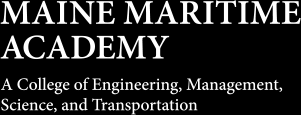Collaborative Success
Professors Carey Friedman (Ocean Studies) and Brendyn Sarnacki (Engineering) were part of a team of faculty awarded a National Science Foundation Major Research Instrumentation grant in 2017 for the acquisition of a gas chromatograph – tandem mass spectrometer (GCMSMS). The GCMSMS is a $400,000 instrument capable of separating, identifying, and quantifying chemicals in complex mixtures. Friedman and Sarnacki have used the instrument extensively to conduct research, assist with student senior capstone projects, and introduce new analytical concepts in courses.
Friedman is currently using the instrument to identify and quantify polycyclic hydrocarbons (PAHs), toxic byproducts of combustion processes, in the Bagaduce River. She has advised student projects that have quantified PAHs in bilge water from the TSSOM, in effluent from the Bangor wastewater treatment plant, and in the air over Bangor. She is currently learning to use the instrument to characterize and quantify polymers in microplastic collected from local waters. She introduces the instrument to Ocean Studies students in chemistry their freshmen year with a lab that tasks them with identifying and determining the amount of caffeine in a drink of their choice.
Sarnacki has utilized the instrument as part of an environmental air pollution course where students characterize volatile organic compounds (VOCs) in ambient air samples and soot samples from combustion sources. He advised an MSE Senior Capstone project aimed at identifying and quantifying VOC emissions from wood product manufacturing in Maine. He has also used the instrument in his own research to identify changes in soot VOC composition produced from alternative oxygenated diesel fuel blends.
Friedman and Sarnacki’s collaboration has been critical to the continued operation and application of the GCMSMS instrument at MMA. Their combined expertise in chemistry and engineering has also proven beneficial to their own research and to students in their respective departments. The success of the instrument at MMA would not have been fully realized without interdisciplinary perspectives and collaboration when analyzing data, checking calculations, and troubleshooting.█
Photo: Courtesy of Carey Friedman




Post Comment
Comments are moderated and will be reviewed prior to posting online. Please be aware that when you submit a comment, you agree to the following rules:
Maine Maritime Academy reserves the right to delete any comment that does not comply with these guidelines and is not responsible or liable in any way for comments posted by its users. If you have a message for the editor, please email mariner@mma.edu.
Campus Currents
View All >Read More
Read More
Read More